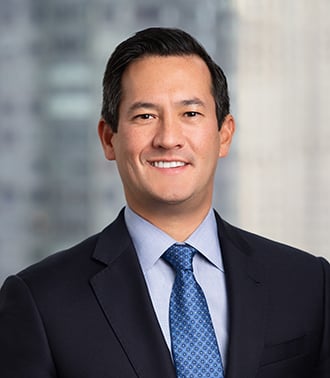SCOTUS Says Fraud Does Not Require Intent To Cause Economic Loss
Does a person commit wire fraud by inducing someone into a transaction using materially false pretenses, but without the intent to cause them a net economic loss? On May 22, 2025, in Kousisis v. United States, a unanimous Supreme Court said “yes.”
The federal wire fraud statute, 18 U.S.C. § 1343 (Section 1343), criminalizes the use of interstate electronic communications “[to execute] any scheme or artifice to defraud, or for obtaining money or property by means of false or fraudulent pretenses, representations, or promises.” The Supreme Court has long read the “money or property” language to define the statute’s reach. Kousisis took on the question of whether “money or property” also must include a net monetary loss to the victim of the fraud. The Court concluded that it doesn’t. We walk through how the Court arrived at that conclusion below.
Facts
The case began with a state contracting bid. Defendants Alpha Painting and Construction Co. and Stamatios Kousisis, Alpha’s project manager, bid on two construction contracts with the Pennsylvania Department of Transportation (PennDOT). Both contracts required the participation of disadvantaged businesses. Alpha represented — falsely, it turned out — that it would satisfy this requirement by purchasing paint from a disadvantaged supplier. Alpha won the contracts, did the work, and received tens of millions of dollars for it.
Enter federal prosecutors. A federal grand jury indicted Alpha and Kousisis on charges of wire fraud and conspiracy to commit wire fraud, alleging the company profited over $20 million from the state by misrepresenting its compliance and intent to comply with the disadvantaged business rule. As alleged in the indictment, Kousisis created a paper trail to make it appear that Alpha bought paint from a disadvantaged supplier, when it hadn’t. At trial, a jury convicted both Alpha and Kousisis.
Post-trial, Kousisis and Alpha moved for a judgment of acquittal arguing that PennDOT got what it paid for and had suffered no monetary loss. Alpha promised to complete two painting projects for the state, and it completed those projects at the agreed price. Though a jury found that the defendants lied, the state was not a dollar poorer for the lies. Moreover, if Alpha and Kousisis did not intend to inflict any economic harm on the state, how could it be that they defrauded the state of “money or property” under the statute?
The district court disagreed. As did the Third Circuit. The Supreme Court granted certiorari because other circuits have held that a wire fraud conviction requires intent to inflict a net pecuniary loss.
Decision
In a unanimous decision, the Supreme Court upheld the fraud convictions. Writing for the Court, Justice Barrett found that “the wire fraud statute is agnostic about economic loss. The statute does not so much as mention loss, let alone require it.” In so holding, the Supreme Court endorsed the “fraudulent-inducement theory” of fraud: “[A] defendant commits federal fraud whenever he uses a material misstatement to trick a victim into a contract that requires handing over her money or property — regardless of whether the fraudster, who often provides something in return, seeks to cause the victim net pecuniary loss.”
Implications
In light of the Supreme Court’s decision, businesses and others might worry about unwittingly incurring criminal fraud liability by making statements in marketing or advertising meant to induce transactions. Two limitations should allay that concern: first, the wire fraud statute still requires intent to deceive the other party; and second, the fraudulent-inducement theory requires the misstatements to be “material” for liability to attach.
Because the defendants in this case conceded materiality, the Court did not articulate a materiality test, but it did observe, “[t]he ‘demanding’ materiality requirement substantially narrows the universe of actionable misrepresentations.” Justices Thomas, Sotomayor, and Gorsuch all penned concurring opinions expressing hope that lower courts would apply Kousisis so as not to criminalize too many misrepresentations.
In terms of outcome for the defendants and the government, this case stands as an outlier for the Supreme Court, which has recently issued defendant-friendly decisions in white collar criminal cases. In 2023, for example, the Court rejected the view that withholding “valuable economic information” to another party in a transaction could constitute property fraud under Section 1343. In 2020, it ruled that a scheme to deprive a government of its proper regulatory functions is not a scheme to defraud that government of a property interest under Section 1343. And just last term, it ruled that a separate fraud statute targeting misconduct by public officials in connection with federal funds does not criminalize gratuities received for an official’s past acts.
Arnold & Porter continues to track courts’ interpretations of fraud statutes here on Enforcement Edge. Our team of former high-level prosecutors, experienced litigators, and regulatory attorneys stands ready to counsel clients on investigative, defense, regulatory, and compliance matters. For questions about this topic, contact the authors or any of their colleagues in Arnold & Porter’s White Collar Defense & Investigations practice group.
© Arnold & Porter Kaye Scholer LLP 2025 All Rights Reserved. This Blog post is intended to be a general summary of the law and does not constitute legal advice. You should consult with counsel to determine applicable legal requirements in a specific fact situation.




